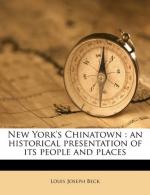|
This section contains 275 words (approx. 1 page at 300 words per page) |

|
1550-1616
Playwright
Government Official. The foremost dramatist of the Ming dynasty (1368-1644), Tang Xianzu was a native of Linchuan in Jiangxi Province. Though he was recognized early for his prodigious learning, for many years he was not allowed to become a jinshi (presented scholar) because he refused to make friends with the son of Prime Minister Zhang Juzheng and criticized the emperor and the government. When he was thirty-four, he was finally made a jinshi and subsequently served in several low-level posts. The people under his administration loved him for his liberal and compassionate policies. Angry at the heavy taxation imposed on the people, Tang quit government service at the age of forty-eight and spent the rest of his life in seclusion.
Influential Playwright. During his final years, Tang wrote The Purple Flute, The Purple Hairpin (a revision of The Purple Flute), The Peony Pavilion, The...
|
This section contains 275 words (approx. 1 page at 300 words per page) |

|




